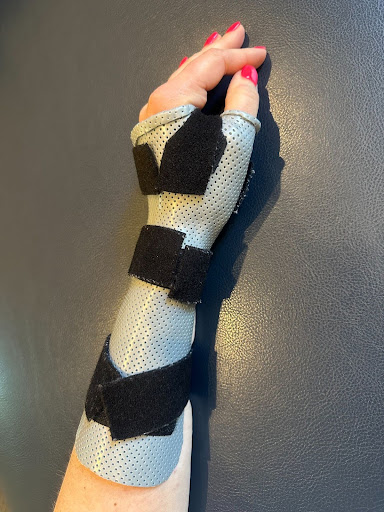In the hustle and bustle of modern life, repetitive stress injuries (RSIs) have become increasingly common. RSIs, also known as overuse injuries, develop gradually and can affect anyone, from office workers who spend long hours typing, to athletes who perform repetitive motions.
Understanding Repetitive Stress Injuries (RSIs)
Repetitive stress injuries are a group of musculoskeletal conditions caused by the overuse of specific muscles, tendons, and joints. They can result from repetitive and forceful movements, improper posture, and prolonged stress on certain body parts. Common examples include carpal tunnel syndrome (wrist), tennis elbow, rotator cuff injuries (shoulder), and De Quervain’s (thumb). These injuries are characterized by pain, inflammation, and limited functionality, often impacting daily life and work productivity.
Common Causes of RSIs

- Occupational Demands: Individuals who spend long hours typing, working on an assembly line, or performing repetitive tasks like turning a screwdriver, are at increased risk.
- Sports and Physical Activities: Athletes and fitness enthusiasts can also experience RSIs due to repetitive movements and excessive training.
- Improper Ergonomics: Poor workplace ergonomics and non-ergonomic equipment can contribute to RSI’s. Awkward positions and inadequate support can strain the body.
- Overtraining: Pushing the body beyond its limits in terms of frequency and intensity can lead to overuse injuries in athletes and fitness enthusiasts.
- Age and Lifestyle Factors: Age, genetics, and underlying medical conditions can also influence the development of RSIs.
Treatment Options for RSIs
- Rest: One of the primary steps in RSI treatment is to rest and avoid activities that exacerbate the injury. Rest allows the affected tissues to heal.
- Manual Therapy: Hands-on techniques, such as joint mobilisation, soft tissue massage, and myofascial release aim to improve joint mobility, release muscle tension, and reduce inflammation. An exercise program can help to strengthen and rehabilitate the affected area.
- Pain Management: Over-the-counter or prescribed pain medications can help manage pain and inflammation associated with RSIs.
- Ergonomic Adjustments: If workplace ergonomics are contributing to the injury, making adjustments to your workspace can be crucial.
- Bracing and Splinting: Braces or splints may be recommended to support and immobilise the affected area during healing.
- Corticosteroid Injections: In some cases, corticosteroid injections can reduce inflammation and provide relief from pain.
- Surgery: In severe cases where conservative treatments are ineffective, surgery may be necessary to repair damaged tissues.
Preventing RSIs
Prevention is the best approach to managing RSIs. Here are some key strategies:
- Ergonomics: Ensure proper workplace ergonomics, including an ergonomic chair and keyboard setup.
- Stretching and Warm-Up: Incorporate regular stretching and warm-up exercises into your routine, especially before physically demanding tasks or sports activities.
- Work-Life Balance: Maintain a healthy work-life balance to avoid overuse injuries related to prolonged or excessive work.
- Strength Training: Strengthen the muscles in your affected areas through targeted exercise.
- Proper Technique: Use proper technique and form when engaging in repetitive tasks or sports activities.
Repetitive stress injuries can affect individuals of all ages and backgrounds. Recognising the signs and seeking timely treatment is crucial to prevent further complications. By adopting preventative measures, adhering to recommended treatments, and making lifestyle adjustments, you can recover from RSIs and improve your overall quality of life. If you’re dealing with an RSI, consult the friendly team at Blackburn Allied Health Group for a personalised treatment plan that suits your specific needs. Remember, your health and well-being are worth the effort it takes to heal and prevent RSIs.


